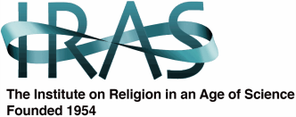“A people without the knowledge of their past history,
origin and culture is like a tree without roots.”
origin and culture is like a tree without roots.”
Past Conferences
|
IRAS HistoryIRAS evolved from the ideas of two pioneer groups. The first was a group of scientists from the Committee on Science and Values of the American Academy of Arts and Sciences. The second group was an interfaith, religious coalition which hoped to revitalize religion for today's needs. Members of both groups saw the, at times, battlefield of conflicting ideologies of religion and science as a place of opportunity for a constructive relationship to emerge.
In 1954 the scientists accepted an invitation to present their views to the religious group at a seven-day conference on Religion in an Age of Science on Star Island. The October 1 issue of Science reported on the conference: Ten scientists explained how they thought scientific and religious knowledge could be integrated... While there were a number of both scientists and clergy who held that religious truth was hardly susceptible of being approached by scientific beliefs, there was a strong recognition that today we can increase the scope and validity of our understanding of our destiny and our relationship to that "in which we live and move and have our being," not only by reading ancient texts, but also by building up the science of theology in harmony with other science. On November 9, 1954, members of the two groups established the Institute on Religion in an Age of Science to work toward these goals. Campion StatementA Statement of Self-Understanding on the Occasion of the Fiftieth Anniversary of IRAS
“We at IRAS take the natural world seriously as a primary source of meaning. Our quest is informed and guided by the deepening and evolving understandings fostered by scientific inquiry. This statement originated in discussions of the IRAS Council at its 2002 winter meeting at the Campion Center in Weston, Massachusetts, was adopted at the 2003 winter Council meeting and revised at the 2003 summer Council meeting.
|
